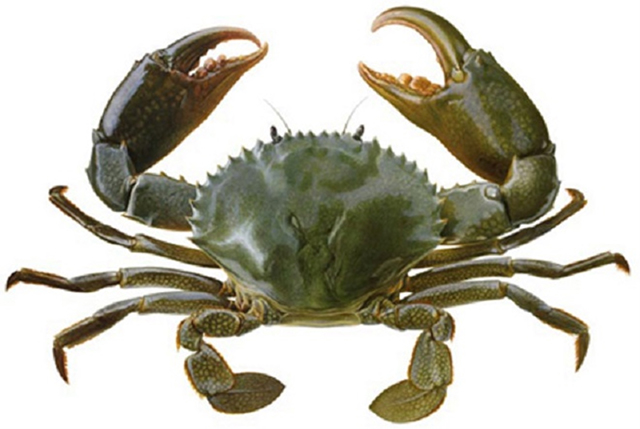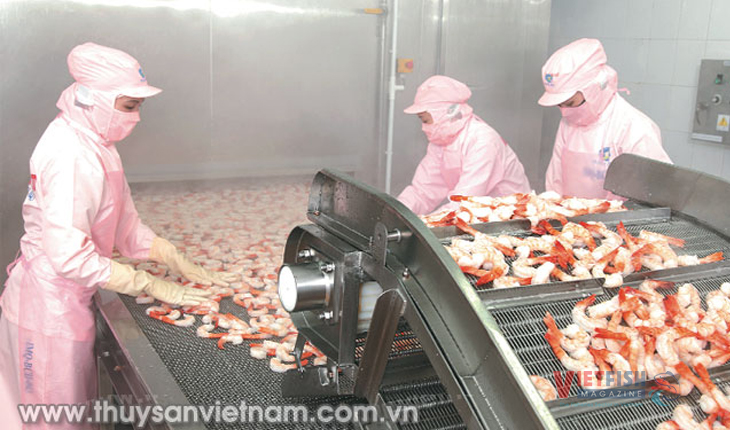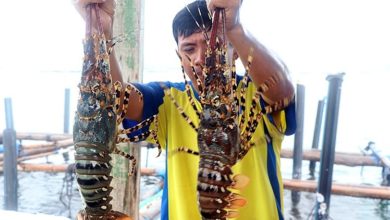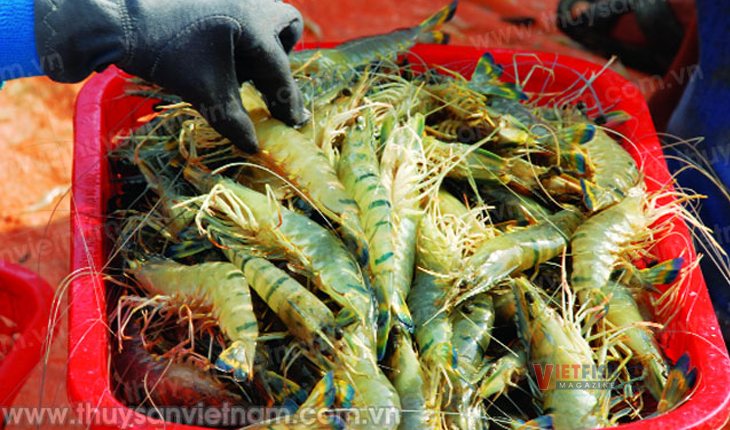The shrimp market is contrary to forecast by experts
The source of shrimp material has met the demand of processing and exporting since May but is deficient. Thus, prices of shrimp have been declining but increasing as forecasted by companies and authorities. However, according to companies, prices of shrimp will rise from quarter III.
The prolonged summer heat and salt intrusion and coronavirus pandemic has made shrimp consumption fall, resulting in a decrease in prices of shrimp, especially in March, and slow seeding compared to the same period when farmers are in the fear of risks.
Forecasts were given regarding a short supply in shrimp material in May and stable prices, even increase from May. However, the source of shrimp material has met the demand of processing and exporting in May and prices of shrimp start to fall.
Even though the stocking is later than the previous years, a vast majority of the stocking area is extensive or super-extensive white leg shrimp applying high technology. Thus shrimp output in the first four months of 2020 slightly decreased from last year.
Another reason for sufficient supply of shrimp material in May is the changing weather which resulted in early harvest with a large amount of small sized shrimps while factories were struggling with deficient workers, making the processing capacity decrease. Since mid May, it has changed to the dry season, making shrimps easily shocked and resulting in early harvest and a large amount of small sized shrimps. In some areas which are suffering from salt intrusion and short supply of water, farmers have to carry out partial harvest or early harvest to decrease the stocking density.
Partial harvest is being carried out in the farming area owned by the Xuân Phú shrimp cultivation business of Sao Ta Food JSC due to short supply of water. Ngô Văn Nghiệp, Director of the Business said “This area frequently suffered from short supply of water in May and June. Although the average stocking density was 200 pcs/m2, we had to carry out partial harvest due to the high survival rate of shrimp. We get around 40-50 tons of shrimp size 50-60 pcs/kg in the fear of deficient water to maintain the same stocking density”.
While the small sized shrimps are abundant, factories are struggling with deficient workers, which has resulted in a decrease in processing capacity. As the consumption of shrimp in major markets has not recovered, prices of shrimp in the Mekong Delta fell in May but increased as forecasted, making shrimp farmers surprised and disillusioned.
Prices of white leg shrimps size 100 pcs/kg ranged at 89,000-100,000 dong/kg, size 70 pcs/kg ranged at 100,000-111,000 dong/kg, size 30 pcs/kg ranged at 138,000-148,000 dong/kg, size 20 pcs/kg ranged at 214,000-224,000 dong/kg in early May. They started to decrease in mid May and fell to 82,000-86,000 dong/kg (size 100 pcs/kg), 101,000 dong/kg (size 70 pcs/kg) and 105,000 dong/kg highest. Large sized white leg shrimp declined after a while staying high. In particular, white leg shrimps size 30 pcs/kg fell to 126,000-132,000 dong/kg, size 20 pcs/kg was 205,000 dong/kg, down 20,000 dong/kg compared to early May.
Prices of most shrimps decreased compared to early May. However, if farmers reach the target output, they will still get a good profit. According to companies, with the current price of 105,000 dong/kg for white leg shrimp size 70 pcs/kg, farmers can earn 30,000-35,000 dong/kg if they reach the target output. As for gig sized white leg shrimps alone, if the target output is reached and FCR is reasonable, farmers can earn 70-80%. Regardless of disillusion in shrimp prices, the speed of stocking in most farming areas in Sóc Trăng and the Mekong Delta are increasing. As usual, shrimp prices rise back from September and October when companies start their purchases to fulfill orders placed on holidays and Tet, from the end of the year till early next year.
According to companies, prices of shrimp may sustain well in early quarter III, one month earlier than the previous two years. This is forecasted upon the little stockpiles in the EU, US, and Japan. The power houses such as China, India, Ecuador, Indonesia and Thailand are suffering from challenges due to the coronavirus outbreak and weather, resulting in a forecast of at least a 20% decrease in shrimp supply. It means that supply which is lower than demand is highly possible. Thus, shrimp prices will be better from early quarter III.
VFM






